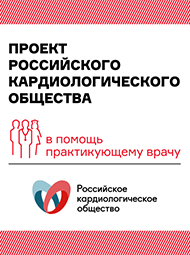Do Thiazides Trigger Metabolic Side Effects in Older Adults?
Metabolic adverse events were relatively common among older, predominantly male veterans who started taking a thiazide diuretic for hypertension, researchers found.
Through 9 months of follow-up, the percentage of patients who developed hypokalemia or hyponatremia or experienced a decrease in kidney function exceeding 25% was 14.3% in those who initiated a thiazide diuretic and 6% of those who did not start taking any first-line antihypertensives (relative risk 2.61, 95% CI 1.91-3.55), according to Anil Makam, MD, of the University of Texas Southwestern Medical Center in Dallas, and colleagues.
That worked out to a number needed to harm of 12 (95% CI 9-17), the researchers reported online in the Journal of the American Geriatrics Society.
"Greater attention should be paid to potential complications in prescribing thiazides to older adults, including closer laboratory monitoring before and after initiation of thiazides," they wrote.
In addition, "it may be prudent to consider alternative therapy for individuals at particularly higher risk, such as multimorbid older adults," they wrote. "Thiazide diuretics undoubtedly reduce cardiovascular morbidity and mortality in older adults with hypertension, but other classes of antihypertensive medications are equally effective in this population and are available at comparable costs in generic formulations."
Although thiazides are recommended as first-line therapy for patients with hypertension and they have been shown to have acceptable safety in randomized trials of older adults, less information about the potential risks is available from real-world settings "where older adults who are treated may have greater comorbidity burden, complicated medical regimens, and poorer adherence to follow-up," according to the researchers.
To explore the occurrence of thiazide-induced metabolic adverse events in everyday practice, Makam and colleagues examined Veterans Affairs data from 2007 to 2008. The study included 1,060 veterans 65 and older (median age 74) who had hypertension and were newly prescribed a thiazide compared with an equal number of propensity-matched hypertensive patients who did not start taking any first-line antihypertensive (thiazides, ACE inhibitors, angiotensin II receptor blockers, calcium channel blockers, and beta-blockers). All had normal sodium and potassium levels at baseline.
Through 9 months of follow-up, the thiazide users had a significantly higher rate of the primary composite endpoint, which included hyponatremia (sodium less than 135 mEq/L), hypokalemia (potassium less than 3.5 mEq/L), or a decrease in the estimated glomerular filtration rate (eGFR) of more than 25% from baseline.
Similar findings were seen for more severe adverse events (1.8% versus 0.6%, RR 3.21, 95% CI 1.36-7.55) and for adverse events requiring an emergency department visit or hospitalization (3.8% versus 2%, RR 1.94, 95% CI 1.11-3.39).
The researchers also examined predictors of adverse events and found that patients with five or more comorbidities -- versus those with just one -- were nearly three times as likely to have a metabolic adverse event (OR 2.96, 95% CI 1.41-6.21).
"Although not previously identified as a risk factor for thiazide-induced adverse events, a high comorbidity burden has been shown to confer a greater risk of adverse drug reactions in general in older adults," the authors wrote. "This greater risk may be due to drug-drug and drug-disease interactions, as well as altered drug distribution and metabolism."
They acknowledged some limitations of the study, including the mostly male population and the potential for residual confounding.
"Future research should evaluate outcomes beyond 9 months after thiazide initiation and include a broader range of potential adverse events, including acute gout, orthostatic hypotension, and falls," they noted.
The study was supported by grants from the National Institute on Aging (NIA). Makam's work on this project was completed while he was a primary care research fellow at the University of California San Francisco, funded by a federal training grant from the National Research Service Award.
The authors disclosed no relevant relationships with industry.
Source: www.medpagetoday.com






